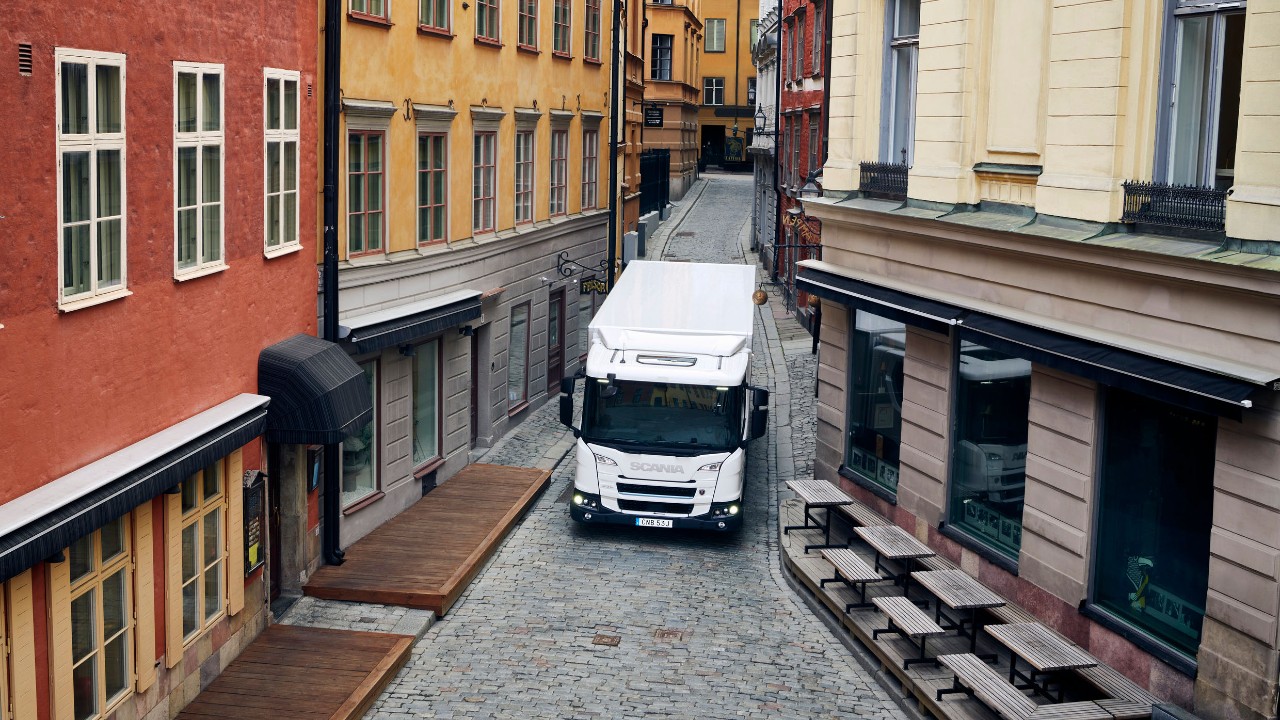
Research and Innovation initiatives and projects
Creating today’s and tomorrow’s transport solutions
From revolutionary advancements in technology to sustainable energy solutions, our initiatives are at the forefront of innovation, paving the way for a brighter, more sustainable future. Our research and innovation projects are designed to push the boundaries of what’s possible, transforming visionary ideas into pilots and groundbreaking realities. We are committed to fostering a culture of creativity, collaboration, and cutting-edge technology, driving advancements that shape the future of transportation.
Here are some examples of our initiatives and projects:
The HITS initiative aims to create a sustainable and integrated urban transport system across several different industries, with the aim of developing efficient transport solutions that contribute to cleaner and safer cities. Scania and CLOSER lead this project and are by joined city authorities, property owners, research institutions and other engineering and logistics companies.
Engineering the future: modular skateboard platform for autonomous transport
By looking further ahead, Scania remains at the forefront of innovation and is well-equipped to meet the challenges of tomorrow. The development of this skateboard platform exemplifies the importance of proactively exploring future scenarios and creating physical concepts that accelerate our learning process.
Autonomous transport solutions will place significant demands on vehicles to deliver a complete service. This concept builds on learnings from the NXT project and research into customers’ daily operations. It explores how emerging technologies and creative thinking can meet customer needs in new and effective ways.
The result is an engineered skateboard platform with a strong focus on circularity, uptime, and energy efficiency.
Its chassis architecture is based on a new type of modular thinking: wheel modules with individual motors, gearboxes, axle technology, and well-defined interfaces allow for easy replacement or upgrades. This design enables the vehicle to be used over a longer lifespan while maximizing the efficiency of resource usage through its lightweight and energy-efficient structure.
The concept serves as a testbed for automation in unmanned delivery scenarios. Collaboration across research and Scania’s internal units has been essential in crafting a solution that is not only visionary but also grounded in practical and competitive potential. The project was part of the HITS (Sustainable Integrated Urban Transport) collaboration research project.
Between 2022 and 2026 Scania is coordinating the AllDrive project, funded by the Swedish innovation agency, Vinnova, which looks at the challenges of using autonomous heavy-duty vehicles in all-weather road conditions. The aim is to develop an autonomous vehicle system that is capable of driving safely in a variety of weathers, especially in heavy rain or snow.
Testing autonomous trucks
At Scania, we put our autonomous vehicles to the test in a range of challenging conditions. This test focused on friction estimation on snowy roads. By simulating real-world scenarios, we ensure that our autonomous vehicles deliver safe, reliable performance, whatever the weather.
Scania has teamed up with Keolis, Ericsson and KTH (Royal Institute of Technology) among others in the Future 5G Ride project, which aims to develop and test technical conditions for introducing self-driving, autonomous vehicles into mass transit and freight transport on public roads in a safe and secure way.
Scania is one of 20 companies, institutes and universities taking part in TREE (Transition to efficient electrified forestry transport). The project, which runs until November 2026, aims to ensure that 50 percent of the sector’s new trucks are electric by 2030, and is coordinated by Skogforsk, the Swedish forestry research institute, and the network organisation CLOSER, at Lindholmen Science Park in Gothenburg.
The E-charge project sees 14 different organisations including Scania work together to develop, test and demonstrate battery-electric transport for long-haulage applications. The tests are occurring in real logistics flows in actual traffic on Sweden’s roads, where drivers do a normal 4.5-hour drive, rest and charge their vehicle for 45 minutes and then drive for another 4.5 hours.
In early 2024, Scania, KTH (Royal Institute of Technology) and Scandinavian Transmission Service AB took part in the iReGear project to integrate reused, remanufactured components on its main assembly line in Sweden, in order to produce a new gearbox. Funded by Vinnova, the project consumed 41 percent less material and roughly 35 percent fewer carbon emissions compared with making a brand-new gearbox, proving it is possible to integrate remanufactured components directly into the production lines of new vehicles.